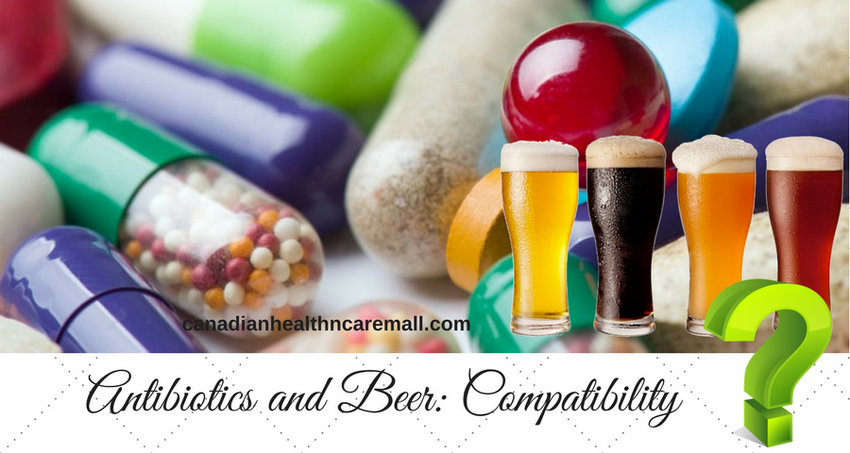Numerous questions about simultaneous consumption of beer and antibiotics made Canadian Health Care Mall online study this question and write this article.
Can You Mix Antibiotics and Beer?
As you know, beer is alcohol-containing drink. Despite the fact that in most varieties alcohol content does not exceed 5%, with excessive consumption of alcohol drink, alcohol concentration in body can reach significant level. Most people understand that alcohol and antibiotics mutually exclude each other’s reception, but why so happens, only a few know. Let’s try to understand this question.
Scientific medicine clearly states that beer and antibiotics are incompatible products, since alcohol directly affects all processes of drugs assimilation by our body. Thanks to alcohol, active substances can be eliminated from body much longer than expected, thus poisoning it.
The cleavage of various substances in body involved in certain liver enzymes. However, alcohol can bring its changes to enzymes performance, thereby significantly reducing their effectiveness. In addition, alcohol can react with various antibiotics, resulting in side effects such as:
In addition, alcohol can react with various antibiotics, resulting in side effects such as:
- nausea;
- headache;
- vomiting;
- fatal case.
List drugs, beer consumption with which leads to disastrous consequences, can be long enough, here are some of them:
- trimoxazole;
- furazolidone;
- ketoconazole;
- metronidazole;
- some cephalosporins;
- nizoral;
- levomycetin.
But the effect of Biseptol tablet, washed down with a glass of beer, can give a more serious effect – very similar to body reaction to simultaneous intake of alcohol and disulfiram drugs, which are used to treat alcoholism.
The result of such actions may be:
- tachycardia;
- confusion;
- chills;
- vomiting;
- nausea;
- decrease in pressure;
- in extreme cases – death from cerebral ischemia.
And symptoms do not take long to wait, the first signs of poisoning will appear in ten minutes, and consequences can last for fifteen days.
Doctors Recommendations
Doctors recommend not to drink beer after taking antibiotics at least in the next three days, because during this period the most part of active substance is excreted from body.
Contrary to the above, there is another point of view on problem. British scientists say that taking some antibiotics in with beer is entirely acceptable. The statement confirms study, which was conducted with non-drinking group of people and another group, whose participants used alcoholic drinks before the test. Scientists found that drinking did not affect active substance distribution in body, thus refuting theory that ethanol affects drugs absorption.
And in 2008, scientific work “Do Antibiotics and Alcohol Mix?”, even proves that the assertion about incompatibility of alcohol and antibiotics is far-fetched. The roots of problem go back to history of World War II, when penicillin was quite expensive medicine and for its reuse it was extracted from urine of soldiers who regularly drank beer, which they put in diet to maintain morale. A person who consumes beer produces much more concentrated urine than one who did not drink alcohol at all. From such urine, it is much more difficult to isolate penicillin. Then there was a ban on beer with antibiotics.

